Posted by scotthastie on Dec 22, 2020 in Blog feature, Gallery, Recent Images, Recent Writing | 20 comments

Scott Hastie’s Timeless provides nourishment to a needful world
Timeless: the best of Scott Hastie’s poetry 1990-2020 is a collection from renowned English poet, Scott Hastie, spanning several decades. There are selections here from Selected Poetry, New Poetry, Meditations, Angel Voices, Threads, and Pranic Poetry. Hastie’s work has a conversational quality; these pieces address his reader, loved one’s past and present and in a manner endearing, questioning, insightful, and meditative. Indeed, the title Meditations for the third section is indicative of the themes expressed within. One can conceive whilst reading these, sitting on a mountain top, either as a lost traveler, or a cenobite from ages long ago, contemplating life, lost loves, friendships, family relationships, whether simple or complex and endeavouring to make sense of it all. Yet, for all of this, he does not leave his audience in a quagmire of anxiety but asks each of us to reach within and find the answers for ourselves.
This, of course, is no easy task, as every life consists of individuals connecting with a myriad of others, who weave in and out either for good or ill. How their roles affect us, from birth to death, is the very foundation of his work. This leaves one to ask, does the anchorite sit in his cubiculum and ask if he/ she treated his fellow man/ woman with kindness? And if not, does he/she ponder over past mistakes and seek expiation? Or does he/she feel that sense of antimonial superiority often associated with wealth and esteem? Hastie would argue, and rightly so, that in the end, the accoutré of the material world will not balance out if the work required has not been completed to achieve that aim; that the exertion adjured taxing as it may be, is not half as important as the result. He would postulate that how one lives and behaves towards his fellow man/woman will be determinate as to what the cost to the self, the divine anima, will be.
There are numerous early lines within this collection which we could use to extrapolate on this theme, and which are written with an evenness of meter that vivifies the text but let us start with the exquisite strophe: “Splendour sleeps in the thick still grey skies the steady muted glow of the sun, its sorry circle of gold highlighting the snow-covered, white-edged portrait of a winters’ afternoon.” The text, paints the day in dullness for Hastie apprehends the melancholia that can subsume and beseech us, never more so than in: “to kiss the fruit and caress the flower, to taste without tarnishing humble natures’ natural dower, in this sweet pursuit I shall place my frail body till death’s timely hour and doing so with only breath remaining to wish that amidst the winds of the world, it will not shake nor cower in the face of eternity.” His body here is frail, he is breath hypoxic. As he continues in another charming piece, how we: “grasp at what juices we can, to become part again of the very scent of some sodden truth, that can in its intensity outlast the seasons, the moods, and the melancholy” soon followed by: “after all, even on a sodden autumn day, the cruel thorn, of a bedraggled pastel rose, still has the polished jagged-edge that crimson blood could burst upon.” Here are our mental frailties, which he is dauntless in facing.
While some take up their poetic pens to sculpt pictures of romance or scribe about the virtues and subtle souls in nature; he sees within us, those things which animate and, in some instances, contrive through chicanery to entangle and enthrall us with cunning pernicious means, and then with a pendulating voice, sometimes lulling and sometimes, vociferously commanding us to take action against the darkness. This is nowhere more pointedly drawn than at the end of New Poetry when calling on the spirits of nature and chthonic souls past and crossing the barrier from life, into nether realm, he speaks of how: “another casket of love has been split and broken; sweet liquors have trickled away forever. Sometimes, when I’m tired and empty, I tear through my head, like some mad reaper, searching in vain for faces, fields, flowers, lovers that are no more.” The flowers here, faces, and fields are of course bereft of redolence, greenery, and the faces that would be attendant have slipped away leaving the reader in a vacuum of silence, awaiting the final chord.
Meditations continues this motif; its ceaseless colloquium shifts gears, transitioning from inner reflections on pain to contemplating healing whilst the voices press on insisting, imploring us to go beyond the umbrian night, as in: “Here, illuminated, at last, nestles the ruddy glint of spiritual certainty; sweet moments of passion and healing, of sensual release.” Where will this take us? Hastie answers us in this regard so fervently: “a life however bravely spent, will always be jagged, incomplete, never far away from being enveloped in darkness.” Is he reconciling himself and us to living with pain, to accept that nothing can change? His rejoinder though gives us a dash of hope: “perhaps there is a clue here, a hint of something more fluid, more oceanic, a fugue state that makes more sense of all this, our pattern, our purpose, our struggle to be serene…” It is within that ‘fugue state’ he finds himself, that lies the challenge to find inner peace? It is telling that Meditations is the shortest of the sections, yet, the most overtly conscious in theme.
I confess on first reading Angel Voices, I was less impressed with it than either New Poetry or Meditations, for it has an ethereal and a more seemingly superfluous flavour than the previous two collections. However, that perception cloaks the value of its worth, for taken together, especially in this edited collection thus presented, we can see a seamless eddy, at first a minute cap upon a river, its white frothy head fomenting into a pond, subsuming to a lake and then in the act of acceptance, acquiescing in the warm mouth of the ocean’s glittering waves, surmounting the previous one in-depth and height.
Taken as such, and read with this understanding, without the passages here, the work and his thought process would seem incomplete and at its worst, jejune. The overture in Angel Voices begins thus: “And so it is for them, again and again… and now with only a dark empty, hollow, a feeble space of earth left in between. Such is true joy’s absolute certainty. Its slow-lit fuse that burns holes in the shabby shroud of death forever. Yet, in the middle piece he admonishes his reader! “let us have no guilt left to waste for dreaming still, and at the end, the light slowly peeps through, Hope glistens daring us to do so much more…” as he finds himself, as does his reader, amid his peregrination. The question is, where will it end?
Threads, one of my favourite collections picks up where Angel Voices left off. Markedly different from the previous four publications; his facile use of meter, precisely woven in the text, infuses each piece with an extraordinary agency, animating the poet’s and the soul’s quest for equilibrium. How he goes about this, is what makes this collection superb and is what I think poetry is all about. The reader is so affected by the emotive narrative and the means used, so gently employed, that what remains upon examination, is not the mechanics utilized, but the cynosure intuited therein. I would encourage any lover of poetry to purchase this collection and read it in its entirety. While I am aware that this is a review of the collection Timeless, I am not averse to plugging Threads as well. There are trinkets, treasures within it, I will put forth that to my mind more than exemplify my case. For example: “Your body, your spirit healing like warm stones…” One can see, at once, a creek its cool cataracts cruising around freckled pebbles in a glade, and the crisp autumn air biting your cheeks and hair, as in: “the smell of fresh rain, like gunpowder on the lawn, embellishes the day, as the summer rips on.”
We are traversing a journey, in which the traveler is aware, as he quizzically identifies: “A persistent, elemental energy that didn’t ask to be here, just is… and when it bursts forth ‘tis a wonderfully furious thing.” And yet, for all his questioning, there are moments of clarity which come in sudden flashes such as: “the purple light of divinity that we call God” elucidating further than: “for we truly are, as we come to recognize ourselves to be, more receptacles, gilded chariots that our spirits ride out, but for a hallowed moment in time.” That he cedes to the inclusions of life, the intangible truths of the body vs. spirit, the body being the host for the spirit, is that epiphany which comes at just the right moment and which leads us to the denouement in Pranic Poetry.
Pranic Poetry is the lengthiest in terms of excerpts and possibly the most exquisite. There is a multitude of lines one could cite, but in truth to extract them, would be like pulling a stray thread from a silken mosaic tapestry, the entirety would fall way leaving only fragments, not the whole, dismantling and dissembling it to the point of meaninglessness.
Where to begin then? While the poet seems to have found that longed for ‘balance’ he seemingly perversely comes to call it a farce, stating: “the illusion peacefulness improves everything.” Most assuredly then, he is alluding to the unsung voices, the souls of the many crying at the unanswering wind. He is not insensible to their pain. His pen does not falter, here, but is dipped in love and reverence: “so well before the time to slip away gathers much pace, so should we all endeavour to love, to leave the best of ourselves behind. And forever remember the need to be kind.” He reaches outward: “how blessed am I these days to be thus, when so many poor souls amongst us lead such lives of quiet desperation and die with their song still unsung inside them” Moreover he retains the metrical nuance he had applied in Threads, and with great purpose, for the results speak for themselves.
Whilst Hastie is a poet, and one who has journeyed within himself, he is cognizant of the outer world, of the tremors that threaten and disturb those outside of his circle, and more importantly, does not turn his gaze away, but reflects back, with his heart and pen. He sees what is around him, yet does not lose that which he has learned, and steels their visages, their plight, and their need for basic necessities within: “When I am as I am, my beliefs gather in strength like swathes of glorious flowers, with delicate veins of iron.” This is not merely the questioning poet, but the active poet, who at times unsettled by what he sees, maintains his sense of who he is, what he has been through, whilst still honoring those outside himself; referencing their, not so dissimilar experiences, and how they compare to the expanse of humanity. With a commanding, and yet loving voice, he puts forth plain truths thus: “Deep, deep down in our hearts, we are pure enough. Much as we first found ourselves, aren’t we?”
For without question, all of us in our darkest hours ask the inevitable, are we good enough? Are we kind enough? Are our hearts unblemished by the stains, and wounds that we have inflicted on others, and which we have received and which score our souls? Undefinable as they are, with Hastie, the answer is a calm, and resounding Yes…
Aria Ligi, Writer, and Poet, San Francisco 2021.
Posted by admin on Apr 3, 2020 in Blog feature, Recent Writing | 4 comments

Pearls of Pranic Poetry:
A full Academic Review of Scott Hastie’s latest collection
by Nivedita Yohana
Prana is the Sanskrit word for “to breathe” or “life force” in Yoga, Oriental medicine, and Indian Philosophy. The term refers to a cosmic energy believed to emanate from the sun and connecting all the elements of the universe. The universal value of energy or force, responsible for the body’s life, sustenance and heat, Prana being the sum of all the energy that is evident in the universe. Over the centuries, this life energy of Prana has been vividly invoked and exemplified, as in the Vedas.
Scott Hastie has eloquently encompassed and re-captured this concept in his collection of poems Pranic Poetry. It opens with the poem If you listen.
If you listen is of course a loaded phrase, pregnant with the still relevant age-old wisdom, which is constantly urging us to cease the madness and listen to the stillness within us. Amid such a fast-paced life with people constantly rushing to be somewhere, doing what is necessary for survival in a way that certainly bears a frequently cited resemblance to that of a hamster in a hamster wheel. We all seem to be basking in a selective amnesia about the inevitable doom that we are all headed towards. Barely surviving day-to-day, rather than living each day to the fullest, celebrating the miracle of creation. Scott Hastie assiduously seizes the very kernel of this notion in the lines:
If you listen carefully
There’s a constant purr
In your soul,
With ambitions
Of provoking a response….
And further goes on to clarify:
Being the essence
Of our existence,
When the truth
Is quite to the contrary.
Scott Hastie´s brilliant use of the concept of ‘’essence’’ coupled with ‘’existence’’ offers us a thesis wherein essence precedes existence and shows us how we are born here to gradually discover this, as we steadily journey towards the light. He tenderly reminds us that, much as we are frequently overwhelmed by material reality of facts and figures, there is only one objective truth, which is often eclipsed by the series of lies we tell ourselves to assuage our ego and make the world around us more bearable. This poem strives to wrench us out of our complacency and amputate the ego, which we often use to shield us from the truth.
The concept of Soul is ancient. The soul, in many religious, philosophical, and mythological traditions, is the incorporeal essence of the living being. Understanding the essence of our purpose in our lives, and acting on it, is what distinguishes us from all other life forms. Scott captures this wonderfully in the poem To live thus:
Every true passion
Shared since
Speaking so clearly
To this,
The resolute
Onward journey
Of our soul.
These lines brim with perspicacity. For every soul has its own unique journey and a purpose, with an ultimate common goal of leading us back to our true origins. After all, the concept of soul having a specific journey is ancient and sprawled across the records of almost all cultures. The soul is resolute and has a role, which is to eventually free us from ourselves. Scott substantiates his argument by using a powerful adage, which so succinctly condenses ancient wisdom:
To live a little
You have to die a little
To live truly, bravely, honestly and to the fullest, our ever cherished and carefully nurtured ego needs to die a little. For our soul to evolve, we must tear down the iron walls that our ego uses to shield us from all imagined hurt and perceived threat. Here Scott incisively scrutinizes the predicament of human beings and shines a penetrating light upon the sense of absurdity that we are surrounded with, in his poem Passing:
Passing,
So often fruitlessly,
Through all the doors
To desire in life,
Far finer,
Faraway prizes
Twist and tease still,
Like runaway kites
Caught up
In a storm of being
That only
More stillness
Can becalm.
Like Sisyphus, we continue to search for the meaning of life, only to find all our tentative answers forever tumbling back down upon us. We can detect the shadow of Albert Camus´s assertions in Hastie´s lines that we should embrace the absurdity of human existence and more fully take on the purpose of creating true value and meaning. Effort and resilience – not suicide and despair… are the appropriate responses. Scott Hastie consistently exudes precious ideas that could save people suffering from existential crisis in this capitalistic world. Camus argued that we must emulate Sisyphus’s resilience, just as Scott Hastie is so keen to do so, in the form of verse.
We are so frequently engulfed in mental storms and desperately and ruthlessly passing through all the doors, only to find ourselves lost in a labyrinth of confusion, hopelessness and blown away like a “runaway kites”. Scott rightfully recommends stepping out of the storm and instead embracing the stillness that surrounds all this toxic chaos.
Scott encourages us to believe the answers to all our parching quests lies in the very heart of this calmness. When such calmness descends and peace gently perches on our soul, our Prana achieves alignment. Our heart, body and spirit step into the boundless space where the more you give the more comes to you. Hovering once again on this loaded subject of ´stillness´ in the poem Like the curiously, Scott pens some of his most soulful and arresting lines:
And even
When I’m no more,
I will remain still
In every facet of place,
Of presence, of purpose,
Of breath
And bare beings too,
And then further clarifies this thought in the poem Take deep refuge
For with your heart
And soul open,
Here and now,
In the stillness before you,
Can be found
The very wonder of life itself
As mortal entities, we are persistently wrapped around with such constant commotion, both within and without. And all the more so, when this chaos outside quickly becomes a reflection our own inner mental state. When, if only we could centre ourselves, the answers lie all the while within us – within that eternal silence and stillness that dwells in our soul and in our spirit. In a world captained by the overriding emotion of fear and threat, it is easy to become incapacitated in that regard. However, an increased awareness can take us a surprisingly long way, rather than so often being left to be swept away by our own disquietude and thereby lose all sight of the light. It therefore becomes essential to recognise the precious sanctuary we have within ourselves and in Scott’s own words:
Take deep refuge
In a noble silence
That’s best used to
Affirm the miracle
Of being alive,
Furthermore, the underlying and overwhelming energy in all the poems in this collection stridently affirm that it is love, which is the key nourishment, the fuel that provides the core building blocks that allow us to work towards our true potential. Ultimately, whether we dare to acknowledge this or not, it is our own inherent, inbuilt capacity for love and compassion that is forever guiding us towards light. Here Scott appends the word ´noble´ to silence and indeed it is truly noble, given that silence is the most underrated of virtues in today´s world, where such importance is given to commotion and extroversion. Consider how often we take for granted the miracle of birth and soon turn it into the most mundane of activities. When our mere existence is a wondrous miracle that we need to be more profoundly grateful for, expressing this by revering all other human beings more lovingly and with much greater compassion.
The only way through the alternative path of pain and misery is through the gift of love that we are all deeply endowed with, existing as an insatiable resource within all of us. When we allow it to, this compelling life force of love can so easily break down any walls we have scrupulously built around us. The poet therefore encourages us then to:
Endeavour to love,
To leave
The best of ourselves behind
The use of the word ´endeavour’ is thoughtfully used here, for any act of love is exactly this. As human beings were are creatures of habits and very easily get caught out and supremely distracted on the slippery slope of our own self-doubt and exaggerated sense of pride. We go to utmost lengths to shield ourselves from the consequences of just such a grim cage we have voluntarily locked ourselves into.
When to break free, we simply need to learn to love and accept ourselves the way we are, in all its nakedness. For only then will we be able to be open enough to love our fellow beings, as fully as we should. Just like a candle, unless you are lit, how can you spread your light to others? Love is the energy which never parches. As Rabindranath Tagore in Gitanjali says:
This frail vessel thou emptiest again and again, and fillest it ever with fresh life.
The most generous of all is the richest among all. This notion is cleverly captured in Scott’s reassuring poem Some where thus:
Along with the fear
Of being forsaken
Or forgotten.
This will never happen
To a generous heart.
A generous heart has nothing to fear, precisely because it is avoids being selfish to become instead truly generous. In this way, there is no anxiety because it has nothing to lose, because it covets nothing. Such is the wonder, the power of light that dwells in such pure Prana. Just a glimpse of this light is enough to illuminate and then shrivel up all our carefully treasured fears. Marianne Williamson in A Return to Love: Reflections on the Principles of “A Course in Miracles” voices a similar thought:
It takes courage…to endure the sharp pains of self-discovery rather than choose to take the dull pain of unconsciousness that would last the rest of our lives.
Equally, in the poem We are all Prophets, Scott reminds us:
Thus do all our lives
Become
An enduring tapestry
Of pointed moments,
Albeit seeded with loss,
The ache of which
Will pass,
Here life is beautifully compared to an ‘enduring tapestry’- a tapestry that is finely interwoven with all our aches and moments of bliss. And no matter how painful or how joyful such fleeting moments are, they leave their traces behind. The image of everything that passes us leaving behind threads, elements that can then illuminate the optimum route for tomorrow is indeed enlightening to the soul and is beautifully rendered in these following lines later in the very same poem:
The absolute truth
Of raw emotions
Etched on our heart,
Left behind,
Radiant,
As pathways to tomorrow.
Just as the title of this collection suggests, Scott Hastie lays bare in front of us the crux of our inner core being with such edifying insight.
In the poem Pray he goes on to encourage us thus:,
Let all negative shapes,
Patterns,
Thought forms
Dissolve, disintegrate,
Be gone.
In a fast-paced life, crammed full of a plenitude of distraction, truth is diluted, masked, reduced and sometimes completely lost in a myriad of negativity, often springing out of raw fear. Furthermore, such negativity is of course astute enough to creep into our ego, justifying the lies that we often tell ourselves and indeed others. Rationalising our insecurities by lulling us into false sense of security and power.
This illusionary comfort may sustain momentarily, but surely like an ever fattening maggot within, it will steadily proceed to eat us up gluttonously, leaving a being cruelly bereft of all light. To us all then, Scott Hastie urgently suggests:
So don’t ever pass by
The chance to lie back
In the long fragrant
Summer grass
And in the Poem Stranded echoes the same vein of thought:
And as for energies
Already spent,
What do they
Count for now,
If not this very moment?
Rather than simply cowering behind some steely veiled castle, filled with anxieties and imagined fears about the unknown future, far better to focus more fully instead on the beautiful gift of the present.
The overarching energy that flows through all these poems recalls Eckhart Tolle’s words in Practicing the Power of Now: Essential Teachings, Meditations, and Exercises from the Power of Now :
When you surrender to what is and so become fully present, the past ceases to have any power. The realm of Being, which had been obscured by the mind, then opens up. Suddenly, a great stillness arises within you, an unfathomable sense of peace. And within that peace, there is great joy. And within that joy, there is love. And at the innermost core, there is the sacred, the immeasurable… That which cannot be named.
Prana – the life force, suffused with its highest glory, effervescent light, immense energy and power lies precisely in this present moment. The key is understanding that, even then, any challenges and the frustration, pain and tribulations that can so frequently plunge us into the abyss of despair are in truth a precious gift that rather presents itself to teach us, strengthen us. In the poem Look deep, Scott writes:
Conscious,
As we are,
That if we weren’t,
From time to time,
So troubled,
So tested, so fallen,
We wouldn’t be
Mortal at all!
And In Time he so succinctly underlines such a key message by reminding us:
Time is forever short,
When your world
Can turn in a second.
Contending then that not one of us mortal beings can therefore afford to squander any of the time we are left with. No matter what material disposition we may have or bestowed upon us, be it that of a king or a beggar, in the zenith of delight or in the abyss of despair! As we are all learning these days, our world can turn in a second, such is the ephemerality of life.
In this volatile cauldron of existence, swinging as it does so violently, between either end of the spectrum of emotions, can only help create a rather destructive rebound.
So rather than agonising over something that can lead to depression, or alternatively being too flush with self confidence and self-importance that can so often bring with it such a persistent arrogance, we should instead rather focus upon having the poise and calmness, whenever riding on the waves of such emotional extremity knowing that ‘this too shall pass’’. In Yogic parlance, this state is called Samasthiti. ‘Sama’ means stable, steadfast, balance, equanimity and ‘sthiti’’ a state of being.
The spiritual significance here is therefore to conjure mental surrender with calm determination to inform and fulfil the true purpose we are here for. The surrender is not to give up or be indifferent, but rather to have detachment, just as Sufis say:
to be in the world, but not of the world.
Through surrender we suddenly tap a supportive inner force (Prana) and life-giving energy that sustains us and propels us forward and upward. In his poem Believe in this place, Scott reassures us that there are:
Miracles out there
To be found.
To feel and witness,
To claim joyously
As our own.
Speaking of miracles, Scott Hastie writing also echoes Marianne Williamson ´s words in Return to Love
In asking for miracles, we are seeking a practical goal: a return to inner peace. We’re not asking for something outside us to change, but for something inside us to change. We’re looking for a softer orientation to life.
Then going a step further, Scott Hastie very poignantly yet tenderly awakens us to just such a binary world when he juxtaposes the world of Miracles with the ´harshest of conditions´ we can all sometimes find ourselves in. Somehow the true concept and purpose of suffering and its existence has always eluded us. The lines below from the poem Here we are addresses this vexing issue head on, with a very perceptive truth:
Knowing,
As we all do,
Blooms
That flower
In the harshest
Of conditions,
Are often the rarest
And most beautiful
Of all.
How true was Keats being, when he proclaimed: beauty lies in the eyes of the beholder. Firther underlined by the fact that the finest of all beauty is so often etched out of our being after taking a beating, thereby becoming the rarest the most telling and precious of all. Because when there is absolute surrender and a calm acceptance seeps in, we are taking a sip from an inner pool of enormous power that lies dormant within us all.
Frequently Scott so tenderly lays down in front of us the absolute beauty of those who bloom their full potential, in spite of all the curve balls that life has thrown at them. Their triumph then is to be seen as standing steadfast in their integrity, without compromising on their life´s purpose.
Every poem in this collection shouts out to reinforce the significant of Prana – the basic life force we all have within ourselves. And yet instead we choose to live in illusion of comfort, of sweeping the inconvenient ego-crushing truths under the carpet and go about life pretending that everything is fine.
Yes indeed… we all can be a step closer to Nirvana, if only we could fondly and lovingly see ourselves in the stark nakedness of our soul, stripped bare of all our angst. The poet here gently prods us towards this state of being, as well as challenging us to dive deep into the enormous, magnificent pool of tranquillity that is within us all.
For here there is true abundance, no room for fear of the future, or shame of our past, as well as an infinite ability to embrace the light. Indeed then:
A step closer to Nirvana…
Till all, at last,
Is made plain,
The true kernel
Of our dilemma exposed.
In Believe in this place, Scott asks a beautiful rhetorical question:
Deep, deep down
In our hearts,
We are pure enough.
Much as we first
Found ourselves,
Aren’t we?
Such eloquence seems to me to pay homage to Dante’s opening lines of Inferno thus:
“Midway upon the journey of our life, I found myself within a forest dark, for the straightforward pathway had been lost.”
How true is it that we all enter this world from the safe confines of our mother’s womb into the forest dark. Scott, as a poet, strives to drive home the fact that we are all here to find our way back to the light, long since conceived in our soul, long before our bodies took full form.
Scott Hastie’s Pranic Poetry is the first of a kind… A collection of poetry that is not only deeply spiritual and reflective – but also, in a magical lyrical way, seeks to first discover, bears and then delivers the absolute truth.
We find the wisdom emanating from… and flowing through life’s experience and observations. As a keen observer, Scott Hastie has truly grasped the fundamental vitality that flows in the veins of the universe and then secured it through his own openly lived life’s experience to make it gloriously permanent in his verse.
As Yeats would put it:
‘we are all turning and turning widening gyre and falcon can not hear the falconer’’
All the while, Scott Hastie is lovingly nudging us towards the falconer and urging us not to confuse the soul’s guiding light with all the distracting neon lights of the material world. For the same light that created the universe, created us…
Scott Hastie speaks to us all then of a powerful life force emanating from the depths of creative energy, where possibilities can be limitless. Reassuring us that this capability abides in all of us.
He urges us not to be intimidated by the darkness that surround us, but instead be inspired by the light that resides within. Surely, intuitively, we know this to be true?
However much we can be paralyzed by fear as we instead mindlessly grope around in the darkness to build instead illusionary, dusty towers of refuge to accommodate our towering and oft toppling egos!
For when the storm comes in (as it surely will…) to leave us spiritually exposed, stark and bare, there is then little left but to sink in the ravine of despondency which, all the while, is gathering itself to become the truly colossal silent pandemic of the modern world. And such is the essence of Scott’s warning…
In pursuit of avoiding this fate then, Dear Reader, there are of course any number of surplus of books long since written, be they fiction or non-fiction. Often exceeding hundreds of pages too, as they seek to bring the humanity back to its true and noble course.
From this perspective then, to succeed as Scott Hastie has done to pen an outline of all such complexities and in a way that offers such a profound insight over the very pulse of life in less than 60 pages of highly accessible lyric verse! Is indeed a precious gift and the true mark of creative genius.
Make sure you read this book, it will truly change you life for the better…
N.Yohana 31.03.20



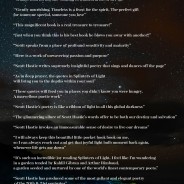
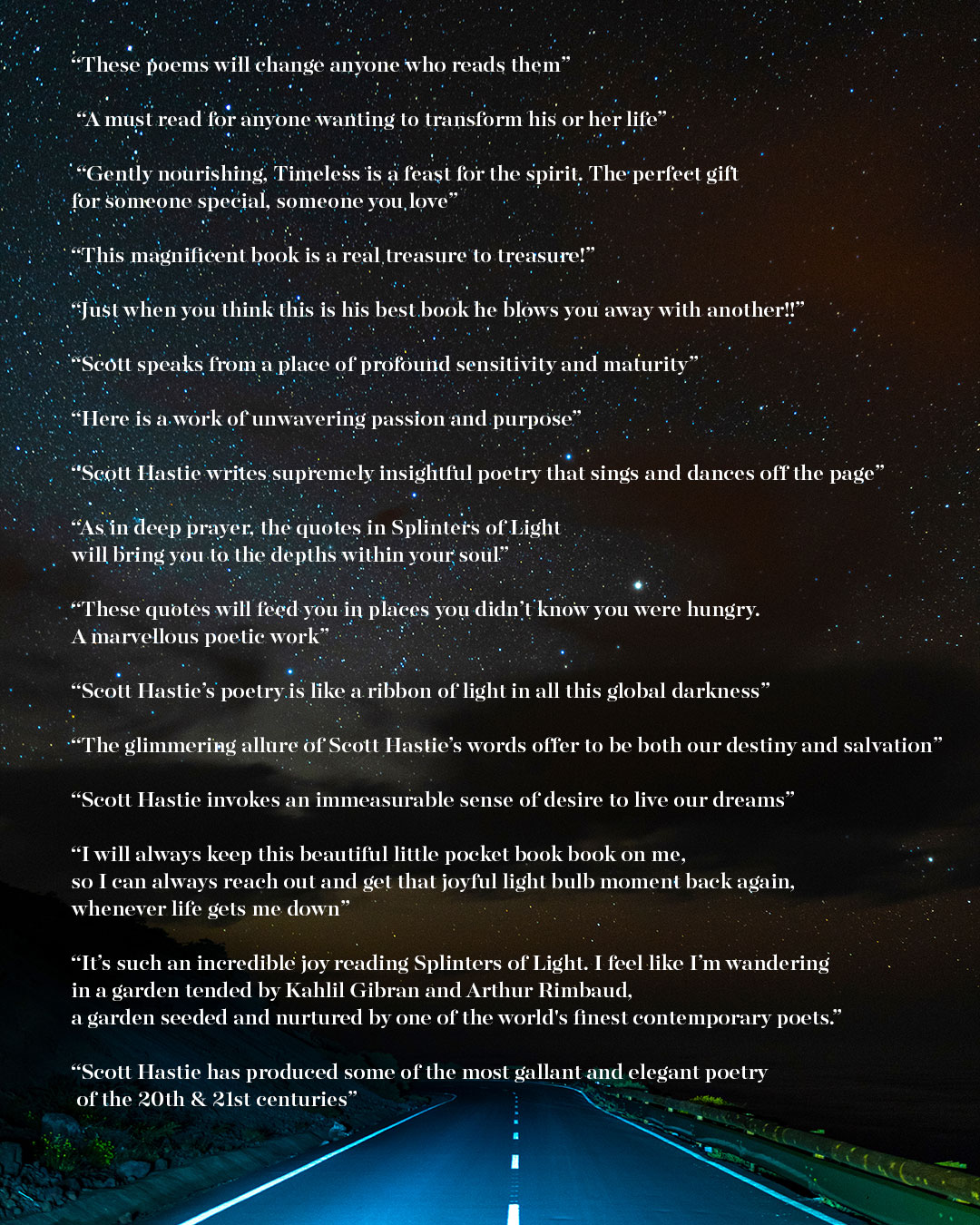

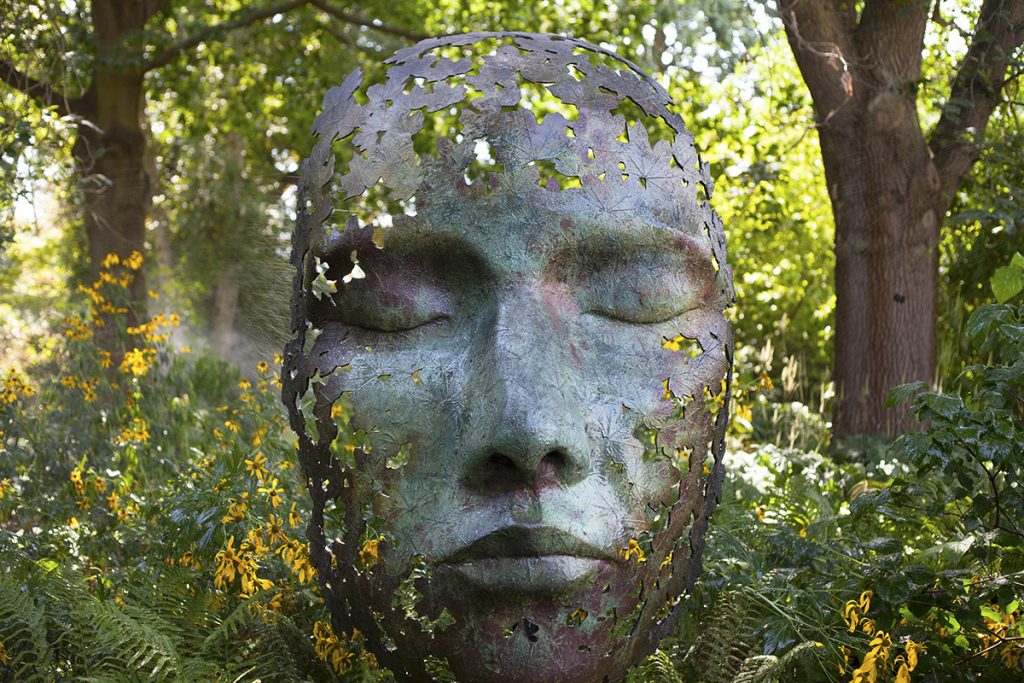
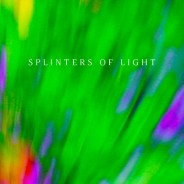
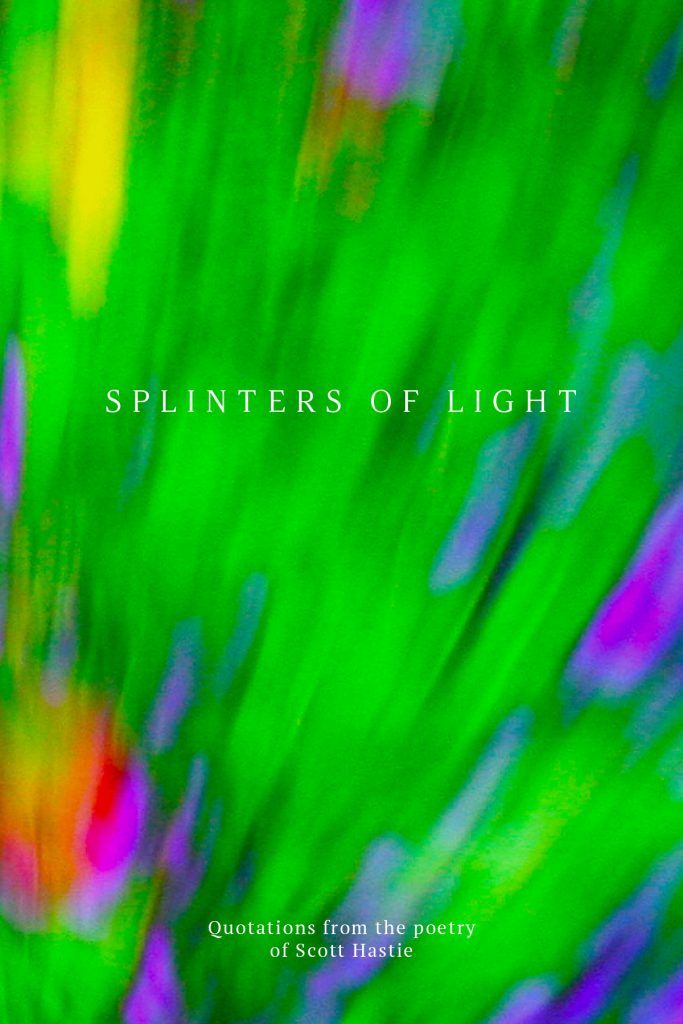
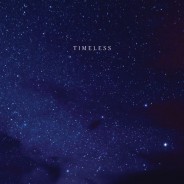
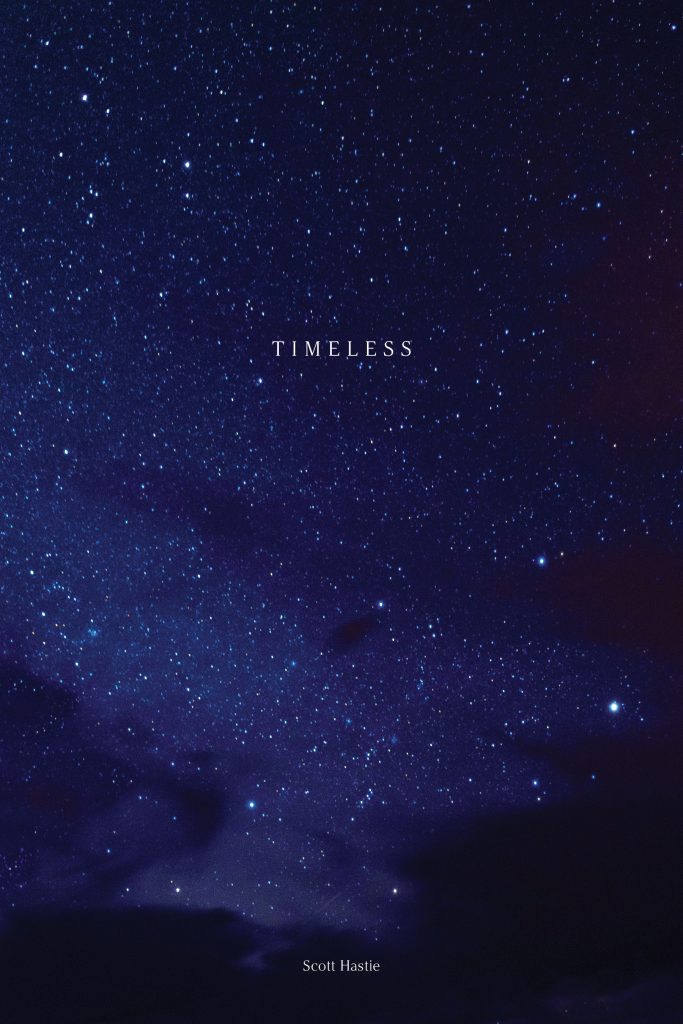





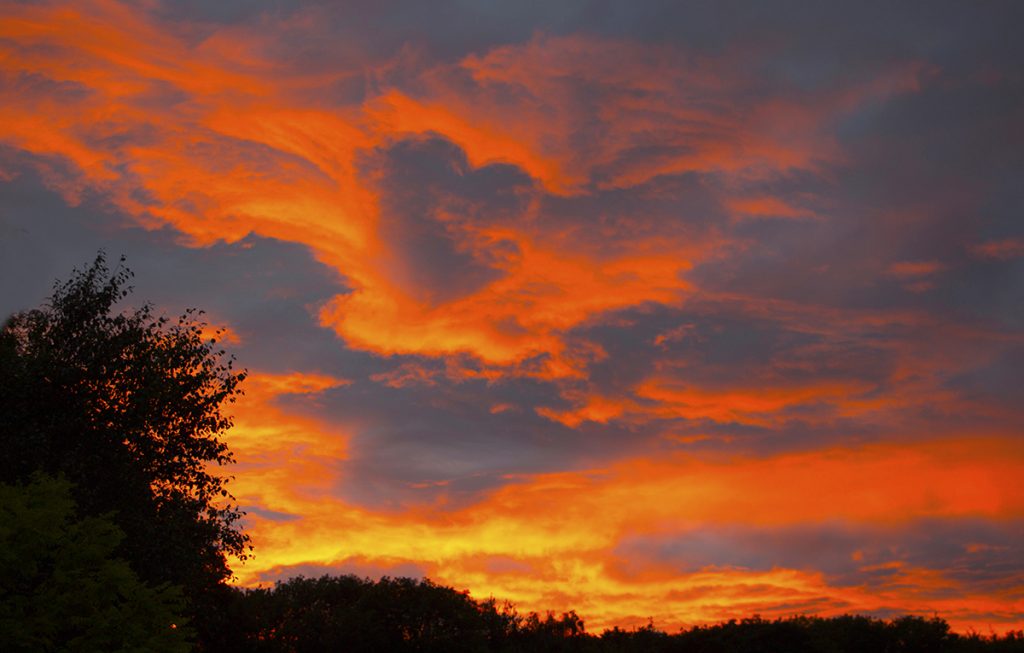


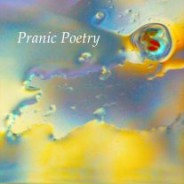
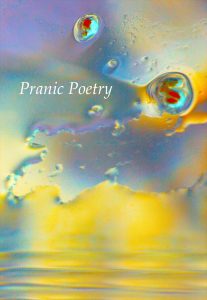





Recent Comments